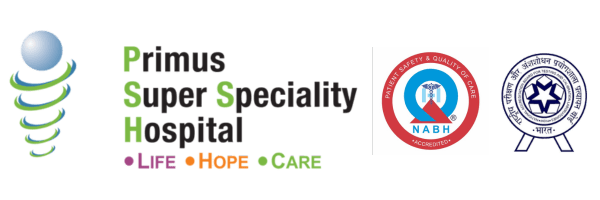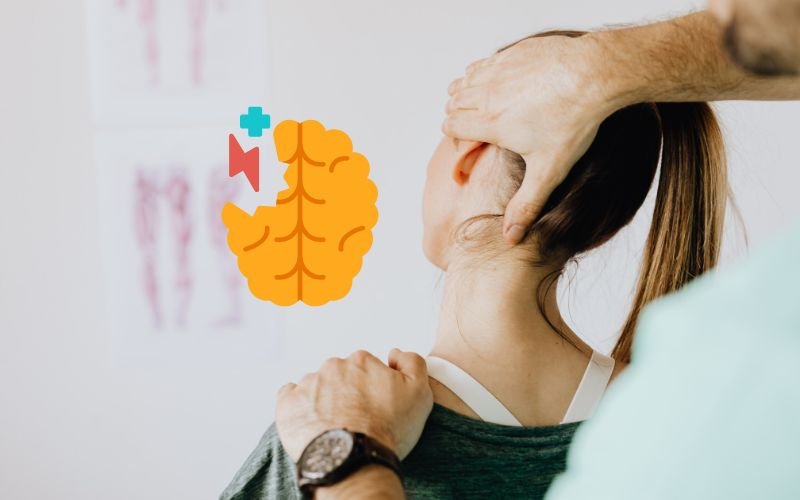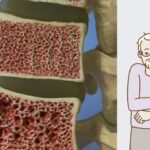Losing control of your body is devastating. This is the reality of paralysis. It results from a spinal cord injury. It results from a severe stroke. It results from other nerve damage. When muscle function stops, life changes instantly. The most effective way to fight back is Physiotherapy for paralysis. It is the core of neurological rehabilitation. It is your best path to regaining independence. The goal is faster, more complete recovery from paralysis. Finding a top Physiotherapy specialist in Delhi is the first, crucial step.
The human brain is an amazing organ. It has a power called neuroplasticity. This allows it to reorganize itself. It forms new connections after injury. Specialized Paralysis physiotherapy in Delhi harnesses this power. Therapists use intense, repetitive exercises. These exercises stimulate the damaged nervous system. They force the brain to find new pathways. This helps the paralyzed limbs move again. A quality Physiotherapy centre in Delhi offers the expertise. It offers the equipment needed for this intensive work.
We will look closely at the science and detail the unique methods used. We will show how a great Physiotherapy specialist in Delhi makes a huge difference.
Why Intensive Physiotherapy for Paralysis Works?
Physiotherapy for paralysis is rooted in brain science. It relies on the principle of use it or lose it. The damaged pathways must be constantly stimulated.
Neuroplasticity.
- Brain Adaptation: The healthy parts of the brain take over. They take over the functions of the damaged areas. This happens through constant and focused activity
- Repetition Matters: Doing the same movement many times is vital. This solidifies the new neural pathways. A few minutes of exercise is not enough. Therapy must be intensive.
- Functional Tasks: Simply moving a limb is less effective. Moving the limb to perform a meaningful task is better. Tasks like reaching for a cup are best.
This science ensures the best possible recovery from paralysis.
Immediate Action for Preventing Long-Term Complications
Therapy must start as soon as the patient is stable. Early intervention is critical. It prevents secondary problems. These problems include muscle wastage. They include stiff joints
The Foundation of Early Care
- Contracture Prevention: The therapist gently moves the joints. This is called passive range of motion. It prevents muscles from shortening permanently. A stiff joint is very hard to use later.
- Circulatory Health: Immobility causes poor blood flow. This raises the risk of blood clots. Physiotherapy in Delhi includes positioning. It includes light exercises. These boost circulation.
- Respiratory Care: Paralysis often affects breathing muscles. Therapists use breathing exercises. This helps keep the lungs clear. This prevents pneumonia.
The initial care at a Paralysis physiotherapy clinic in Delhi stabilizes the patient. It prepares the body for harder work later.
Specialized Techniques for Motor Recovery
A Physiotherapy specialist in Delhi uses specific, advanced techniques. These are proven to accelerate recovery. They go far beyond basic exercises.
Constraint-Induced Movement Therapy (CIMT)
This is a key method for hemiparesis. It is used when one side of the body is paralyzed.
- The Principle: The good arm is restrained. The patient is forced to use the weak, affected arm. This is done for many hours a day.
- The Result: It forces the brain to pay attention. It makes the brain send signals to the weak limb. It dramatically improves use.
Body-Weight Supported Treadmill Training (BWSTT)
This is a breakthrough for walking recovery. It helps patients relearn to walk.
- The Setup: The patient is supported in a harness. They walk on a treadmill. The support prevents falls
- The Benefit: It allows the patient to practice the natural walking pattern. It does so without fear. This repetition greatly improves gait.
These methods are often hallmarks of an excellent Physiotherapy centre in Delhi.
How Physiotherapy for Paralysis in Delhi Accelerates Recovery
We continue our detailed look at Physiotherapy for paralysis. We examine the roles of technology. We look at sensory recovery from paralysis. We emphasize the long-term journey
The Role of Advanced Technology in Rehabilitation
Modern Paralysis physiotherapy in Delhi incorporates high-tech tools. These tools increase the intensity. They increase the effectiveness of the treatment.
Utilizing Robotics and FES.
- Robotic Exoskeletons: These devices help patients stand. They help them walk. They provide many, many repetitions. Repetition is necessary for neuroplasticity.
- Functional Electrical Stimulation (FES): Small electrical pulses are sent to the muscles. These pulses cause the paralyzed muscles to contract. This helps with foot drop. It helps with grasping. It teaches the brain the feeling of movement.
- Virtual Reality (VR): VR training engages the patient. It provides a fun, challenging environment. This enhances motivation. It boosts focus.
These high-tech aids make Physiotherapy in Delhi state-of-the-art.
Retraining Sensation: The Complete Recovery Picture
Paralysis is not just a loss of movement. It often involves loss of sensation. The ability to feel touch is important. Sensory retraining is a vital part of comprehensive care.
Techniques for Reconnecting Senses
- Tactile Discrimination: The patient tries to identify textures. They identify objects with their eyes closed. This forces the brain to process touch input.
- Mirror Therapy (Revisited): This technique tricks the brain. It helps with pain and sensation issues. It helps the brain see the paralyzed limb working.
A good Paralysis physiotherapy clinic in Delhi addresses both. It treats both movement and sensation
The Long Road Ahead: Sustaining Recovery from Paralysis.
Recovery from paralysis is a marathon, not a sprint. The most significant gains happen early. But improvement can continue for years. Consistent effort is mandatory.
The Importance of Home Exercise
- Daily Practice: The patient must follow the home exercise plan. They must do it every day. This maintains the muscle activation. It reinforces the neural pathways
- Adaptive Tools: The therapist suggests devices. Devices like canes or braces help. These tools increase safety. They increase independence.
- Lifestyle Factors: Maintaining a healthy diet is key. Adequate sleep is vital. Stress management is very important. These factors support brain health.
Finding the Best Physiotherapy Centre in Delhi
The choice of your Physiotherapy centre in Delhi determines your outcome. You need a center specializing in neurological conditions. Do not choose a general center.
Key Things to Look For.
- Neurological Expertise: Does the clinic have a dedicated Physiotherapy specialist in Delhi? Do they have experience with strokes and spinal injuries?
- Intensity: Do they offer long, frequent and intensive sessions? This is non-negotiable for recovery from paralysis
- Equipment: Do they have the right equipment? Equipment like parallel bars and specialized machines is necessary
- Team Approach: The best centers work as a team. They work with occupational and speech therapists.
A highly rated Physiotherapy in Delhi center offers all these.
Paralysis is a devastating condition. But specialized Physiotherapy for paralysis provides a powerful solution. It gives the chance for recovery from paralysis. The right expertise and dedication are your greatest allies.
Primus Hospitals is a premier Paralysis physiotherapy clinic in Delhi. We are equipped with state-of-the-art technology. Our team includes highly specialized Physiotherapy specialist in Delhi professionals. We create intensive, personalized programs. We focus on maximizing your neuroplasticity. Trust Primus Hospitals to be your partner. We will guide your journey toward greater independence.
FAQs
Yes, it absolutely is. The brain maintains neuroplasticity. Later therapy may focus on strength. It focuses on endurance. It focuses on new tasks
Costs vary greatly. They depend on the equipment used. They depend on the therapist’s expertise. You should discuss packages with the Physiotherapy centre in Delhi.
The intensive phase often lasts three to six months. This requires daily or near-daily sessions. The total time depends on the injury severity
A specialist has advanced training. They have experience in complex neurological cases. This specialized knowledge is critical. It is key for optimal recovery from paralysis.
Yes, sometimes it can. Therapists address core strength. They address pelvic floor muscles. This can help improve functional control













